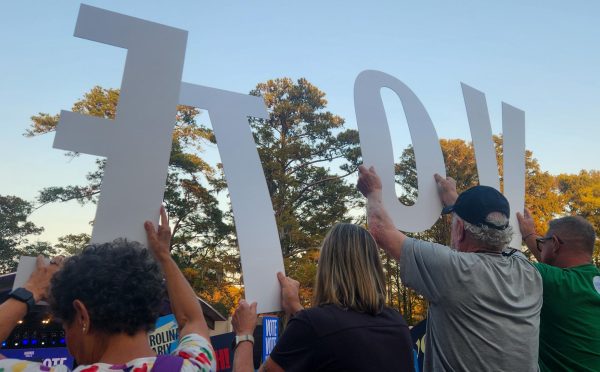Court rules that controversial voter-ID law is discriminatory
North Carolina’s recent voter identification laws, set in place in 2016 and written in 2013, were just struck down by an appellate court. Deeming them to be discriminatory, the three-judge panel decided the bill was strategically seeking to suppress the black voters of North Carolina.
According to The New York Times, the Republican government rewrote the state’s voting policies in 2013 following the Supreme Court’s decision to strike down a segment of the Voting Rights Act of 1965. This segment had given the federal government the ability to supervise changes in election procedures in states that have shown a negative racial history.
The bill required voter-ID, decreased the number of early voting days, and changed policies such as same-day registration.
Black voters, who typically relied on the policies eliminated from the bill, tend to largely vote Democratic. After receiving information on the demographical voting results, the voter-ID bill was crafted and passed by the Republican-led government.
Diana Motz, a circuit judge as part of the panel, described this bill as targeting “African-Americans with almost surgical precision.”
Motz acknowledged the racial disparity laced throughout the bill by noting that officials were specifically “targeting groups unlikely to vote for them.” The motive behind this, Motz states, “will predictably redound to the benefit of one political party and to the disadvantage of the other.”
According to the court reports, however, limited record confirmation regarding the Hispanic population of North Carolina does not allow for any assumptions to be made against other minorities being suppressed. The court can only examine the impact amongst the African-American/black community.
As a direct reply to the bill, Rev. William J. Barber II, the president of North Carolina’s N.A.A.C.P., noted, “A political majority doesn’t give you the power to run roughshod over the Constitution.”
North Carolina Gov. Pat McCrory (R), who is most widely known for enacting House Bill 2, has attempted to justify his legislature’s decisions on crafting and maintaining the bill.
According to The Washington Post, in response to the court’s decision, McCrory stated, “Three Democratic judges are undermining the integrity of our elections while also maligning our state.”
With McCrory’s bill, many North Carolina voters would be hindered in maintaining the swing state. As African-Americans disproportionately use the first few days of early voting and same-day registration, they are also much more likely to lack the means of photo identification.
This issue is not solely based in North Carolina, however. North Carolina is one of the 17 states that have enacted restrictive voter laws and is also a part of a string of states being investigated for their policies.











